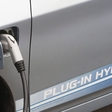
1. Why do I really want a plug-in car?
Potential buyers usually say, they want a plug-in car because it will save them money or because they feel like this is a cool way to lower their ecological footprint. However, despite the fact plug-in cars will indeed save you plenty of money you would otherwise spend on gasoline, just buying an all-electric car will set you back for a rather large amount of money. Moreover, it is true EVs are producing zero tailpipe emissions, but on the other hand they are powered by rechargeable batteries – when you think about it, producing electricity, which is every EVs life juice, isn't always entirely environmentally-friendly, is it?
2. How far will a plug-in car take me?
Plug-in hybrids' all-electric average range is about 40 miles, but it of course depends on the battery pack and driving conditions. Once the batteries are empty, the car switches to conventional gasoline motor. With purely electric cars the driving range is about 80 to 100 miles, which should suffice for average, shorter trips around the city. EV drivers need to consider recharging their vehicle overnight and, when planning longer trips, making a plan of charging stations on the way, so the car doesn't run out of juice in the middle of the road. It's definitely not advisable to take all-electric trips 'into the unknown'.
3. Is replacing the battery pack really going to cost me a fortune?
Well, rechargeable batteries or not, sooner or later they need to be replaced. But the answer is no. With EVs we're talking years, not months. EV batteries usually warrant an around 8-year-long lifespan and over 100,000 miles, with many models promising even more than that. So, to keep it short – worry not, they surely will stay with you for as long as your EV will, but you might be able to make a couple of miles less over the years.
4. Where do I charge my plug-in car?
You can rely on the fast-growing network of public charging stations all over the world, but it's expected to own a home charger as well, which can be bought and installed for less than 1,000 dollars. Many companies will also offer chargers at work.
Other things you need to check locally is the benefits and tax incentives you may be entitled to for purchasing an EV; also, check your bills for your electricity rates and calculate the long-term costs for charging your EV.



